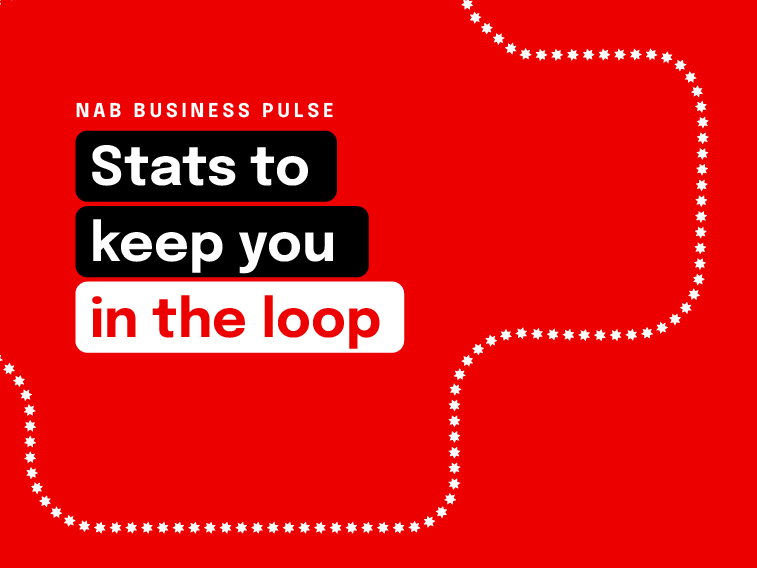Change is a constant in our global environment, but that's all the more reason to keep moving forward on your terms.


Article
Warren Taylor has been breeding and selling bees for over 40 years. He also rents them out to farmers to help pollinate their crops – and he’d like us all to be more aware of the role the humble honey bee plays in both global agriculture and the Australian economy. We share his story.

Four-year-old Warren Taylor used to climb his fence and sit for hours watching his neighbour’s bees. Impressed by his interest, the neighbour gave him a beehive of his own and his future was sealed.
Today, his company, Australian Queen Bee Exporters, is the biggest beekeeping business in Australia, with 15 employees tending close to 9,000 hives.
Taylor, who features on the August pages of this year’s NAB Agribusiness Calendar, began his work with bees in 1965, when he graduated from Hawkesbury Agricultural College and became an extension officer with the Department of Agriculture. Checking beehives for disease was part of the job, and as he still had hives of his own, he welcomed the opportunity to learn from experienced beekeepers. After seven years, he was ready to go into business on his own.
Taylor’s primary focus is breeding queen bees and package bees for sale. A package is a container the size of a shoe box with wire gauze at each end which is filled with worker bees, one queen and a can of sugar syrup. This can be flown all over the world – in Taylor’s case, mainly to Canada, Japan, the Middle East and Lebanon.
Within Australia, he sells to beekeepers who need to restock hives that die over winter. He also rents bees to farmers to help pollinate their crops.
“Years ago, there were enough feral bees living in the trees to do the job,” he explains. “But then the small hive beetle entered Australia in 2002 and destroyed large numbers of feral colonies, leaving many farmers with a very low yield of fruit. These days, honey bees will significantly improve the yield of most crops and almonds are totally dependent on them. This season I took 6,000 hives down to almond farms in Victoria. Without bees there would be no almonds.”
Always the entrepreneur, over the years Taylor has helped establish the biggest bee farm in Saudi Arabia and a centre for training beekeepers in the Philippines. This year, in response to demand from the health food industry, he started to sell pollen.
“Now, when the bees come back from the fields, they go through a trap that knocks the pollen off their legs which we collect, dry and clean,” he says. “We’re also in the process of converting all of our honey into honeycomb as we’ve identified a big market for that in Asia.”
Over the years he’s seen many changes in the industry, mainly thanks to mechanisation. “When I started out, we loaded hives on to small trucks by hand,” he says. “These days the hives are kept on pallets and we use machines to load them on to big trucks. We now have large extractors to remove the honey. And the size of the farms has also increased. One thousand hives used to be a big business, but today it’s not unusual for a beekeeper to have 5,000.”
Beekeepers face challenges ranging from cheap, imported honey, to finding and retaining staff.
“We move the hives about five times a year and we can’t load them until the last bee has come home. They then have to be in their new location by daybreak,” says Taylor. “A lot of people are put off by all of that night work and travelling.”
His greatest hope is that bees will soon get the credit they deserve. “The beekeeping industry itself is valued at about $10 million a year; it doesn’t attract a lot of attention,” he says. “But, when you take pollination into account, it’s actually worth billions of dollars. The almond crop in Victoria alone is worth $500 million. I’d like to see people becoming more aware of the contribution bees make to the economy, as well as the foods we eat every day.”
This article was first published in Business View magazine (Summer 2014). For more articles and interactivity, download the iPad edition of Business View for free via our app, NAB Think.
More from NAB:
© National Australia Bank Limited. ABN 12 004 044 937 AFSL and Australian Credit Licence 230686.